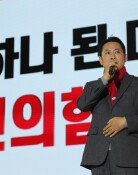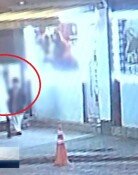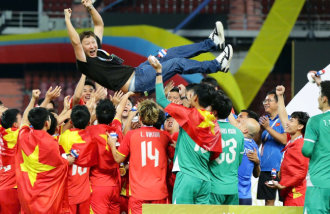What Will Happen After the Local Elections?
What Will Happen After the Local Elections?
Posted July. 23, 2005 03:11,
As local elections will be held in May, next year, heads of local governments are inconsistently exercising their power to grant licenses and permissions. Since these acts by officials are intended to win more votes in the upcoming elections, people are voicing their disapproval over such indiscretion.
Some local governments often turn down applications to which applicants are legally entitled, or refer them to its supervising agencies.
This results in lawsuits, wasting energy that could have been used in other administrative affairs.
Dropping Like a Hot Potato Into Others Hands
Both Busan-si and Haeundae-gu have been dragging their feet for three years over a private companys offer (to change part of the city planning scheme) to develop reclaimed land on Suyoung Bay. Both local authorities dragged their feet in taking up the matter before the project once again became subject to the supervision of Haeundae-gu.
A private developer has submitted a city planning scheme four times since 2003, saying it would build more than 500 apartments.
According to insiders, however, Busan Mayor Huh Nam-sik and Mayor of Haeundae-gu Bae Deok-gwang are keen to not get involved in a scandal. The developing firm bought approximately 40,000 pyong of land, an unbearable financial burden on the company, and went bankrupt.
Illegally Illegal
In Yeongcheon-si, Gyeongsangbuk-do, in May, Kim (32) was denied permission to build an arsenal on 992 square meters of land located on a hill in Amgi-ri, Hwasan-myeon.
The regional police headquarters gave the green light to Kims plan after conducting a safety examination. Still, Yeongcheon-si turned down Kims request on the grounds that the construction could cause resistance from and uncertainty among residents.
Kim complained, I passed the safety test and there was no illegal element to my plan. But they didnt grant permission. It was an abuse of their authority.
A person familiar with the provincial affairs of Gyeongsangbuk-do said, If a case is brought to the court, where principles of law are highly respected, the local government is likely to lose. It seems that the municipality is concerned more about the elections than about legal impartiality.
Daewoo Engineering and Construction Co. was in charge of the construction of the 14th section of the Gyeongbu High-speed Railroad, one of the governments programs. Along the course of its work in March last year, it applied to the Office of Buk-gu, Busan (chief official Bae Sang-du) for the removal of a green belt in order to create a tunnel.
Buk-gu has not approved the construction for over a year, citing opposition from environmental groups and residents. The city finally said yes to the construction in April when faced with hostile public opinion over blocking the state project. The construction firms financial losses for that period were enormous.
Administrative Litigation As an Easier Way-
The Ulsan mayor is sticking to his position that a 38-story commercial and residential building should not be constructed on the site of Taehwa-ru, located in Taehwa-dong, Jung-gu. The lot was acquired by a private developer at a cost of 30 billion won. The site belongs to a commercial area according to the city-planning scheme. So the mayors opposition is not a legally-based one.
The Ulsan municipality said, If the developer wins the administrative lawsuit, we can allow the work to proceed.
In fact, local governments are losing a series of civil lawsuits.
In November last year, a local governmental agency in Gyeonsangnam-do rejected Kims application to build new hospital facilities (for funeral services) on the grounds that the new facilities would increase traffic. The governmental body lost the case in administrative court in March this year.
In Daejeon-si, 32 similar administrative cases were brought to court in the first half of the year alone, an 18 percent increase from 27 cases last year. In nine cases out of 27, local governing bodies were found to be on the guilty side.
On the matter, self-governance and administration professor Yook Dong-il at Chungnam National University pointed out, The power to grant permission is centered on heads of local government. It should be delegated to working-level officials so that the opinions of those who are actually in charge of things can be respected. The checks and balances of local assemblies should be improved to prevent the abuse of powers by heads of local governments.






![넘치는 전재수 과거 사진들…유죄의 증거일까, 무죄의 증거일까[청계천 옆 사진관]](https://dimg.donga.com/c/138/175/90/1/wps/NEWS/IMAGE/2025/12/20/132997378.1.jpg)
